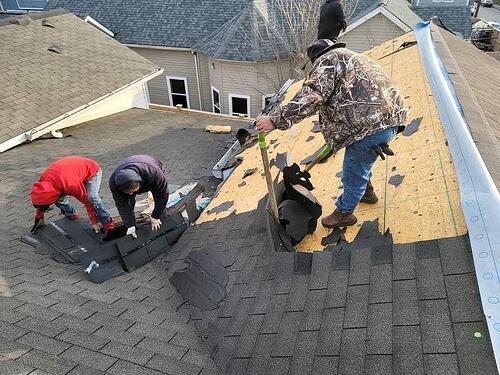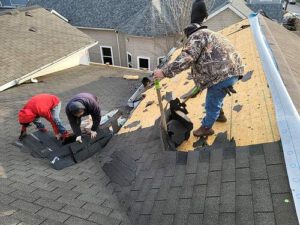Before hiring a Roofing Contractor, knowing what to look for is essential. This professional should be bonded, insured, and have experience with hand tools. A roofing contractor should also be skilled in handling different materials, including shingles, slate, and metal. A project quote will be very helpful in determining the cost of the repair or replacement. A project quote should include the insurance company name, policy number, limit, and warranty.

A good Roofing Contractor will provide a written estimate of the work involved before starting the project. While many roofing contractors work independently, others work for roofing companies. Before hiring a contractor, ask them about their licensing and company structure. In addition, ask if they use subcontractors. They will provide you with a free evaluation of the roof. This way, you’ll know what to expect. You can decide on which contractor to hire by getting an accurate estimate.
It would be best if you researched several contractors before choosing the one who will work on your roof. Visit their office to see what type of work they perform and ask about their experience, insurance, and licensing requirements. Visit the Better Business Bureau or chamber of commerce in your area for information. You can also check reviews online to see if any customers have had a positive experience with the contractor. Roofing contractors who have a good reputation are worth contacting. If you’re not sure, try a few others.
Before hiring a Roofing Contractor, it’s important to determine whether your state requires a license. Some states leave roofing regulations up to local jurisdictions. However, if you don’t find a license for a roofing contractor, you’ll risk being held responsible for any problems that arise. In some states, a roofer must be licensed and show their license number on their marketing materials. A roofing contractor must meet insurance requirements and be insured before they can work in the state.
Before you choose a roofing contractor, consider the type of project you’re planning. While some general contractors are skilled and knowledgeable, they’re not specialists in roofing. While they may be cheaper, you may wind up spending more money in the long run if you choose a less experienced roofing contractor. A roofing contractor’s expertise and training are vital in protecting your home. It’s never worth a gamble with your investment.
When looking for a Roofing Contractor, it’s important to know how to hire a bonded one. A bond is the best way to ensure that a roofing contractor has a solid reputation. A surety bond protects the homeowner and the roofing professional against monetary loss. A surety bond also protects the owner against a roofing contractor who doesn’t fulfill the contract. The bond will help ensure that the job is done correctly without compromising the quality of artistry.
Roofing materials vary in their fire resistance. The most common low-slope asphalt roofing materials require professional installation. These include built-up hot-tar systems, which use a layered asphalt-soaked fabric. Newer versions of this material are peel-and-stick single-ply modified bitumen sheets. Liquid-applied fiberglass and acrylic are also popular choices for roof coverings. These types of materials may not contain embedded fabric. They may be designed to reflect light, so they are not a good choice for homes with low-pitched roofs.
Depending on the architectural style of a home, you can choose a gable, hip, or lean-to roof. Gable roofs featured two or more slopes and were often used in ancient temples. They are lightweight and resist high winds but may be noisy during storms. Metal roofs vary from $6 to $14 per square foot. These materials have a long lifespan and are relatively inexpensive.
Depending on the climate, houses may be designed with steep or low-sloping roofs. Stone roofs are often low-pitched, while steep roofs are common in higher-rainfall regions. Generally speaking, steep roofs are not used in houses, but there are modern elements that may eliminate the need for them. Regardless of their functionality, they may still be attractive. The slope of a roof will determine how much heat it will absorb.

